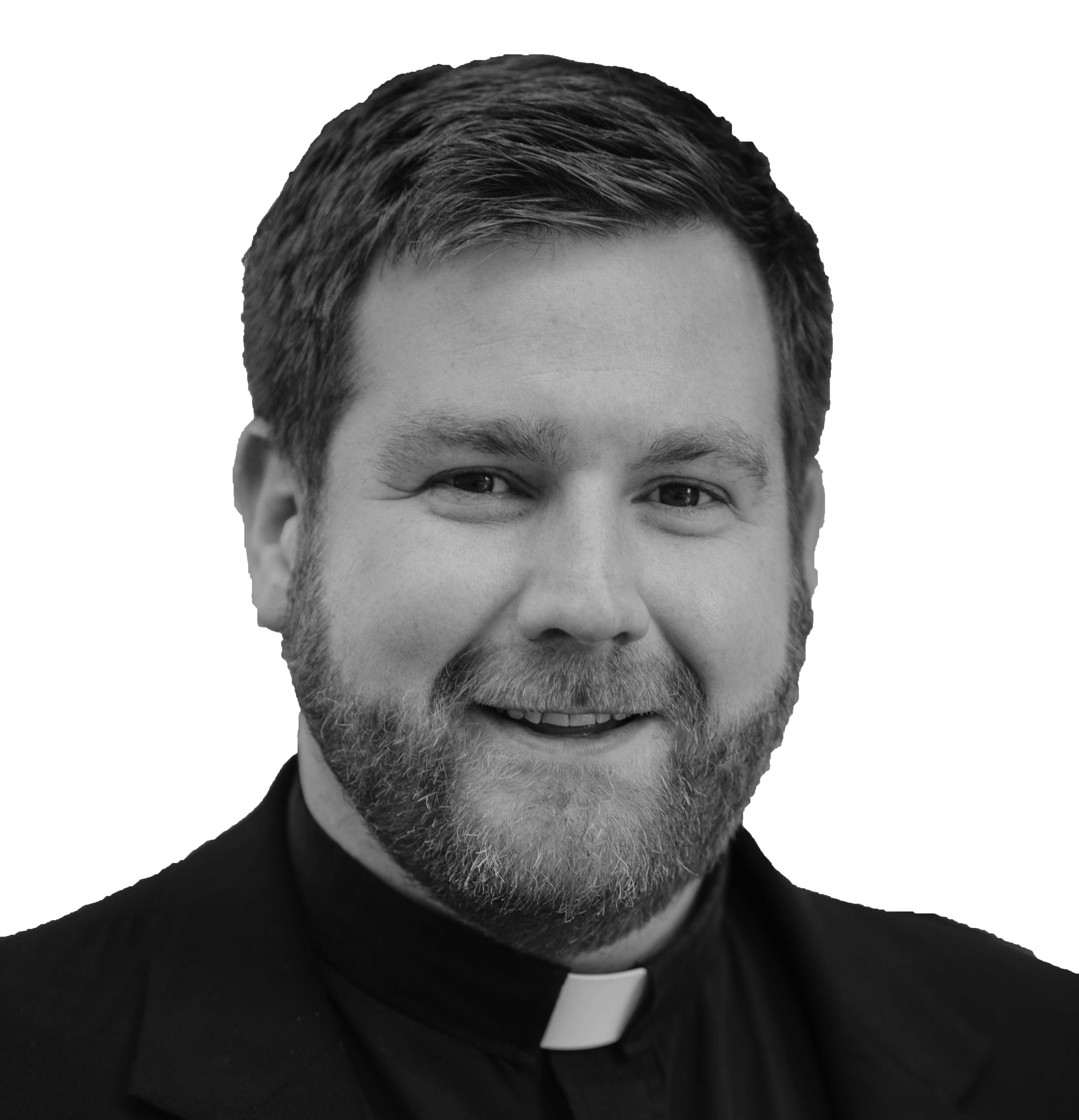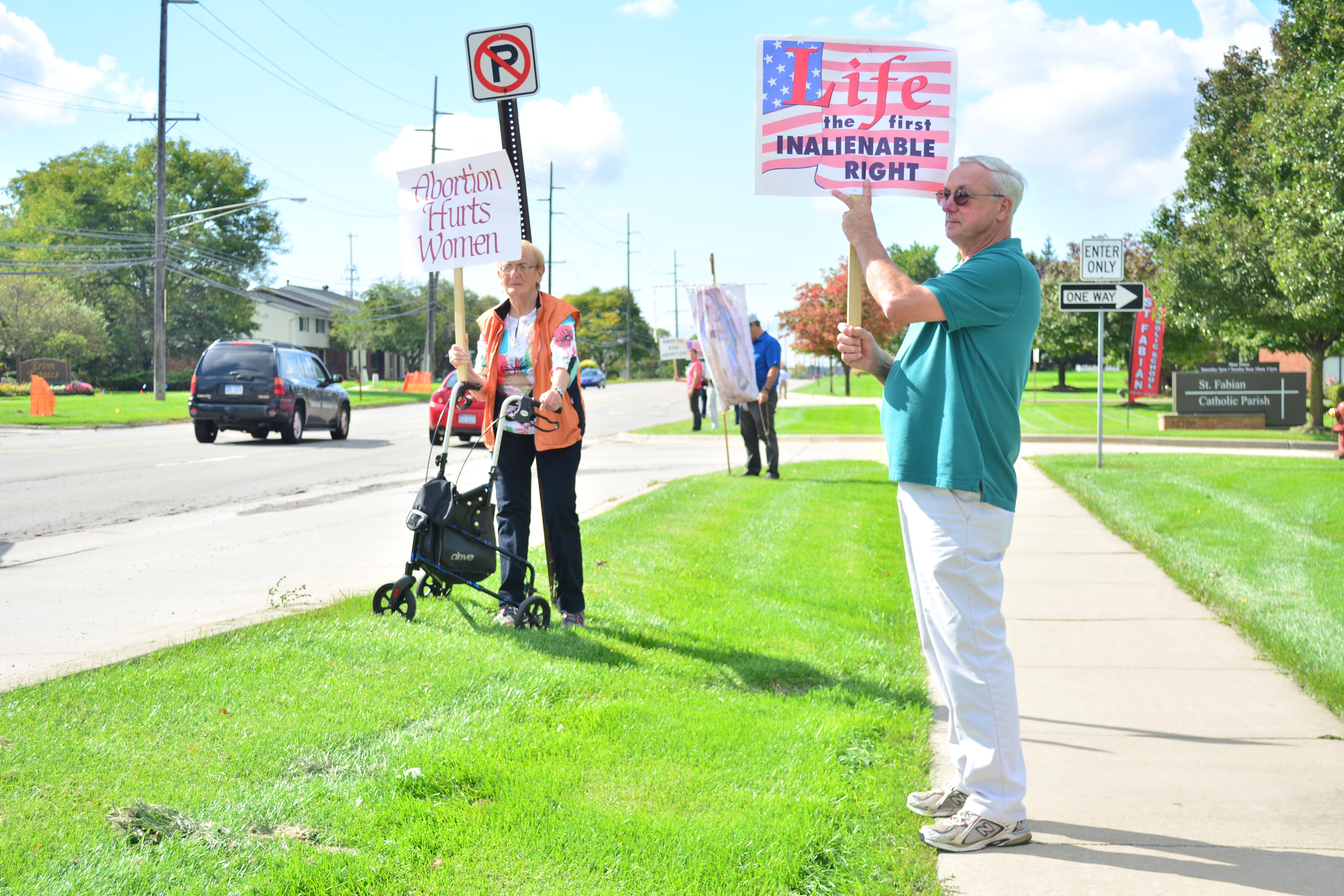“The threat of abortion remains our preeminent priority because it directly attacks life itself, because it takes place within the sanctuary of the family, and because of the number of lives destroyed.” (U.S. Conference of Catholic Bishops, Forming Consciences for Faithful Citizenship, Introductory Letter)
Our Catholic faith is a tremendous gift that transcends everything on this human plane. St. Paul told the Christian Colossians in the first century (1:4): “If then you were raised with Christ, seek what is above, where Christ is seated at the right hand of God. Think of what is above, not of what is on earth. For you have died, and your life is hidden with Christ in God. When Christ your life appears, then you too will appear with him in glory.”
Paul was warning these early believers not to become preoccupied with the things of this world, since God has transformed them into a new creation. Through our baptism, we become citizens of heaven and, in one sense, we revoke our worldly citizenship. We are called in a mystical sense to live like exiles or pilgrims, on our way to our true homeland: the heavenly Jerusalem.
Expressing this reality, the Church “is not identified with any political community nor is it tied to any political system. It is at once the sign and the safeguard of the transcendental dimension of the human person” (Gaudium et spes, 76). The Church, and by extension, all Christians, point to this reality to which all men and women are called. You and I and all men and women are invited to this renunciation of sin and belief in the Gospel.
But keeping our eyes fixed on Jesus does not diminish our commitment to helping this world more closely reflect the Kingdom of God. Catholics are called to engage in the political arena for this purpose. We strive toward this important goal, always understanding the reality that politics should not overshadow our commitment to Jesus Christ. No politician, political party, or platform will align perfectly with the Gospel. But this does not mean that all things are neutral, or all issues are equal.
Last November, the United States Conference of Catholic Bishops issued guidance for forming one’s conscience for faithful citizenship:
“The threat of abortion remains our preeminent priority because it directly attacks life itself, because it takes place within the sanctuary of the family, and because of the number of lives destroyed. At the same time, we cannot dismiss or ignore other serious threats to human life and dignity such as racism, the environmental crisis, poverty, and the death penalty.”
The bishops recognize the Gospel’s demand to fiercely protect and advocate for the dignity, safety, and good of all human life from conception until natural death. There is much to be said on each of these issues, but for the purposes of my column today, I would like to take up three points to help us understand why the evil of abortion stands out as our preeminent priority in the social realm.
Abortion directly attacks human life
Euphemisms are often used to explain away the reality of what is happening, but we cannot escape the fact that abortion takes the life of an innocent child. It can be referred to as “pro-choice” or “women’s health” or “reproductive rights” or “a woman’s right to choose,” but all “successful” abortions end in the death of a human life. There is no other policy or political movement that so directly and fatally attacks human life or counts its success in the ending of human life. The result of abortion is death.
Euphemisms are often used to explain away the reality of what is happening, but we cannot escape the fact that abortion takes the life of an innocent child. It can be referred to as “pro-choice” or “women’s health” or “reproductive rights” or “a woman’s right to choose,” but all “successful” abortions end in the death of a human life.
We understand the challenges many women face from their families, economic situations, and other internal or external forces, and we therefore should do all we can to create a society in which abortion is not only illegal, but unthinkable — a society where no mother is in need of anything for her unborn child. Great work is being done on that front by countless humble and beautiful pro-life missionaries on the front lines of the fight for the right to life, providing moms with money, housing, diapers, counseling and many other resources. And as we consider matters of public policy, we Catholics can and do support initiatives that make these and other services accessible to those in need.
As we work for all of these goods, we should be unequivocal in our condemnation of abortion. Those who work in the abortion industry, participate in helping desperate moms procure an abortion, or lobby for expanded abortion access, funding, or international outsourcing are participating in a great evil, which demands our loud and loving voice in the call to repentance.
Abortion perverts the ‘sanctuary of the family’
God, in his infinite power, could have constructed new life to come about in any way. In his infinite wisdom, God chose to have new human life grow in the womb of the mother. He chose the womb of the mother to be the sanctuary in which a child can grow and be nourished until he or she is ready for life outside the womb. Abortion ends the life of the child in the very place where the child is meant to be safest.
When abortion is encouraged, promoted or tolerated, the plan for the human family is under direct attack. Pressure is placed on the woman — the mother of the unborn child — to make the decision “for her body,” disregarding that there is someone more than her involved. The child, the most silent and most vulnerable member of our society, is rendered an inconvenience, forgotten and destroyed. The father is too easily released of his obligation to love this mother and protect this child, especially if the child is conceived outside of marriage. God’s plan for the family, where self-sacrificial love becomes the standard and new life is seen as a gift, is turned on its head. Precious and innocent life is ended, fathers lose or willfully forfeit their call to imitate the fatherhood of God, and the womb becomes the place of violence rather than peace.
The scale of abortion in our country is horrific
Reports by the Centers for Disease Control show that in 2016, there were more than 600,000 abortions in the United States. However, because California, New Hampshire, Maryland and Washington, D.C., do not report abortion data to the CDC, the actual number is likely significantly higher. In an encouraging turn of events, this figure represents a decrease to less than 50 percent of the abortions performed in 1990, when the procedure reached its highest annual rate of 1.4 million children. Despite that decrease, the fact remains that since abortion was made legal in all 50 states, more than 57 million children have lost their lives to abortion. This is a staggering number that is almost impossible to fathom.
No disease or injustice comes close to the scale of destruction of human life that legalized abortion has brought upon our country. As technological advances have made abortion more easily accessible, scientific advances have also made it easier to recognize this inescapable fact: the child in the womb is a distinct human life with distinct DNA from the mother and father. The marvels of ultrasound technology show us with ever greater clarity the humanity of the unborn child. The experience of pro-life ministries around the country testify to the life-changing impact of sharing these images with mothers considering abortion.
I have been blessed to stand shoulder to shoulder with men and women who are standing up for the rights of the unborn. They are maligned, laughed at, and assaulted for their commitment to the defense of the most vulnerable members of society. But they are heroes, bearing witness through their words, their actions, and their love — for both the child and the mother — that all life is precious and deserves to be protected.
There are many issues to which we as Catholics need to be attentive for the building of a pro-life, just and Christ-centered society. The U.S. bishops acknowledged many of these in their counsel to the faithful seeking to form consciences for faithful citizenship, and it is our duty as Catholics to examine each one carefully, weighing possible solutions or approaches. But when it comes to protecting the life of the child in the womb and condemning the legality of abortion, it should be very clear that this is one issue that can unite us all: Catholic and non-Catholic, all who believe in the authority of science, and all who are committed to caring for the most vulnerable in our society. This is why, as Catholics, “the threat of abortion remains our preeminent priority.”
Fr. Stephen Pullis is director of the Archdiocese of Detroit’s Department of Evangelization and Missionary Discipleship.










